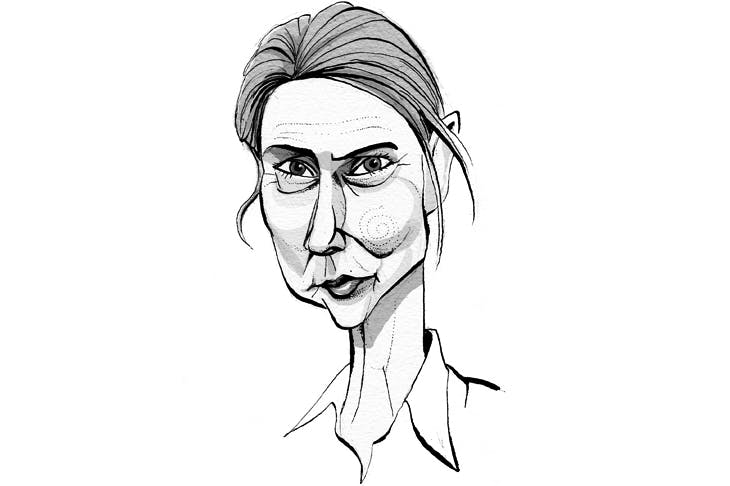Mishal Husain: If an agent submits a manuscript by a gay transgender Caribbean who dropped out of school at 7 and powers around town on a mobility scooter, it will be published, whether or not it is incoherent, tedious, meandering and insensible: the view of the writer Lionel Shriver. And after she expressed that – it was in reference to the Publisher Penguin Random House’s new diversity policy – she was dropped as the judge of a literary competition run by the magazine Mslexia. Lionel Shriver and the magazine’s editor Debbie Taylor are both on the line. Good morning.
Lionel Shriver: Good morning.
Debbie Taylor: Hi there.
MH: Lionel Shriver, first of all, do you stand by what you said there?
LS: Of course, though I should clarify that if you read that line in context, it is clearly making fun of the box ticking exercise of meeting all these criteria for diversity goals. It is not making fun of the actual groups that I identify.
MH: Penguin Random House said that the policy that they outline was about their new hires and their authors needing to reflect UK society as a whole, that they wanted to take into account ethnicity, gender, sexuality, social mobility and disability. I mean, the reason I ask you whether you stood by that part is the implication in it is that policy will lead to mediocre or bad writing being published.
LS: I’m concerned that quotas could lead to lower quality work being published. The point on which I have been wildly misinterpreted is to suggest that what I mean is that diversity leads to lower quality work being published, and that’s certainly not my position because that would be tantamount to saying white people are better writers so we shouldn’t publish anybody else. And who in their right mind would take that position?
MH: Where are the quotas?
LS: If Penguin Random House is aiming to mirror the makeup of the UK population in gender, race, ethnicity and class by 2025, that is an arithmetic goal. Those are quantifiable numbers, so that’s a quota system. Now I know that Penguin Random House denies that that’s a quota, but those are quotas. That’s what a quota is. And the United States has had a lot of experience with, what’s called in the US, affirmative action. It’s had all kinds of negative consequences, and I’m afraid has actually entrenched racial prejudice in the US, and I don’t want t see it over here.
MH: Let me turn to Debbie Taylor, editor of the magazine Mslexia… Why did those views of Lionel’s lead you to drop her as the judge of the competition?
DT: Our problem is not about Penguin Random House’s diversity goals… our issue is about Lionel’s aggressive and mocking language about diversity goals…
LS: Have you ever written a column? Have you ever written a column?
DT: Yes, I have actually and I do know that one is pressurised to be kind of provocative and witty… I have done that.
LS: I’m not pressurised. It’s the form. The form is you need to have a strong voice, and you’re also supposed to be entertaining.
DT: … No, I do know that.
MH: Just let Debbie Taylor explain – explain why that is a problem for you.
DT: Well, for us as a magazine that supports women writers, we feel that approach creates a hostile environment for all women writers, because the piece that Lionel wrote isn’t attacking just people from diverse backgrounds, but also…
LS: It does not attack anyone from diverse backgrounds. It attacks a publishing company’s policy.
MH: Let Debbie Taylor finish her thought.
DT: The quote quoted at the beginning of this section is the one that has been widely quoted…
LS: And taken out of context
DT: Yeah, I’m sure it… I mean I’ve read the piece and it is taken out of context. But nevertheless, the piece itself is mocking of diversity goals, does appear to be mocking of…
LS: It’s mocking of quotas, yes it is. It is mocking.
DT: Yes, OK, well I have things to say about quotas, but my main point is that is that we invited you to be a judge because of the quality of your writing and because we actually like the way you stir up debate on all of these issues, but we felt that we had to withdraw the invitation because we felt that you would… that this particular piece and the way it’s been taken up by the media has created an atmosphere that will be very discouraging for particular groups of women writers, and they’re the very groups of women writers – well, we try and encourage all women writers, but we don’t want to exclude groups of women writers. So although it’s probably – well definitely not your intention to do that…
LS: No, it is not!
DT: Of course it isn’t, but the storm itself has had that effect, and that’s why we’ve taken this stance.
MH: Has that made you pause for thought Lionel?
LS: Well, no. I stand by the column. I think it’s an enjoyable column. I certainly haven’t changed my minds about the use of diversity quotas in publishing or anywhere else. As for the judging of the contest, I had agreed to do it as favour. I’m being let off the hook, so it’s not exactly crushing. But it does bother me that I’m being told that I’m discouraging women and other minorities from entering publishing. Nothing could be further from the truth. I think there was some open letter from the Penguin Random House mentoring programme complaining that somehow I’m criticising them or dissing that programme, and I don’t mention that programme in my column at all. I fully support it. I think it’s a great programme.
MH: Lionel Shriver, Debbie Taylor, thank you both.






Comments